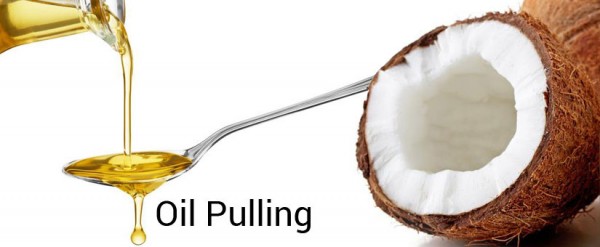Oil-pulling has become increasingly popular as homeopathic remedies are becoming more prevalent. While this trend is growing, it is certainly not a new exercise.
The practice of oil-pulling dates back over three thousand years ago to India with the practice of Ayurveda medicine. “Ayurveda” brings together the Sanskrit words ayur (life) and veda (knowledge or science). Practiced in India, Ayurvedic medicine is one of the oldest known systems of medicine in the world.
The typical way one performs oil-pulling is by swishing around one tablespoon of coconut oil in their mouth for twenty minutes and then spitting it out. Other common oils that can be used for oil pulling are sunflower oil and sesame oil.
typical way one performs oil-pulling is by swishing around one tablespoon of coconut oil in their mouth for twenty minutes and then spitting it out. Other common oils that can be used for oil pulling are sunflower oil and sesame oil.
Oil-pulling is not just lore based on stories; there is actual science behind it. Most of the microorganisms that live in our mouths are single-celled bacteria. Each of the cells that make up the bacteria is surrounded by a fatty membrane called a lipid layer. Think of this layer as the skin of the microorganism.
When the fat in the coconut oil comes into contact with the fatty lipid layer of the cell, they are attracted to one another and will stick to each other. This way when you spit out the oil you are also spitting out the microorganisms.
4 Tips for Beginners
Oil: Choose coconut oil. Although sesame and sunflower oil may be used, coconut oil has an ingredient, lauric acid, which the others lack. Lauric acid is known for helping the body fight harmful bacteria. There is also some new studies that argue coconu t oil can help fight against cavities.
t oil can help fight against cavities.
Swishing: Be sure that you are gently sucking and pushing and swishing. Do not work too aggressively and cause your jaw to ache. This is unnecessary work and can be harmful over time to your temporomandibular joint (TMJ).
Spit it out: If it feels like you have to swallow the oil, you are using too much. You do not want to swallow the toxins that the oil pulled out. Also keep in mind that you should spit the oil into the garbage can. Too much of any oil down the drain can cause plumbing issues.
Daily Oral Hygiene: the practice of oil pulling is not meant to replace flossing and brushing and regular dental visits. While it can be an added adjunct therapy that helps improve your health, it is certainly not meant as a replacement. Continue to brush your teeth twice a day, floss once a day, and see your dentist for regular check-ups and cleanings to stay healthy.
If you have questions about oil pulling or your oral health, call our office at 215.568.6222 to schedule a free consultation today. Dr. Cirka, Dr. Mimi Jeon, and Dr. Stephanie Smith look forward to meeting you!


